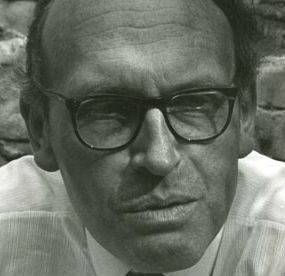Remember When
Here are some of the people and events that have made the University what it is today.
Send your memories and anecdotes (max 300 words plus a high resolution photograph) to alumni@lancaster.ac.uk.
We’ll include as many as we can.
Appointment of Philip Reynolds - Second Vice-Chancellor
Professor Philip Reynolds, a political scientist, officially became Lancaster's second Vice-Chancellor in January 1980.
Professor Reynolds had been the acting Vice-Chancellor since October 1978 after Sir Charles Carter announced his intention to resign his post.
He began his career by teaching international history at the London School of Economics after the Second World War when the idea of international relations being treated as an independent branch of the social sciences was still a novel one.
In 1964 Professor Reynolds was part of the team that established the new university, becoming the senior Pro-Vice Chancellor as well as Professor of Politics. Despite a substantial administrative load, he continued to teach first year students along with a final year course on contemporary international relations theory, a class that many students found daunting but exhilarating.
Professor Reynolds remained Vice Chancellor until his retirement in 1985. During that time the university system as a whole lost about 20% of its annual grant. Lancaster, however, was bringing in surplus revenue and in 1983 embarked on a three-year programme of expenditure to encourage research. Reynolds attributed his success at Lancaster to having established a corporate spirit, in contrast to the corporate management then dominant in the university sector. He later played an important role in the Committee of Vice-Chancellors and Principals, and chaired the committee on common academic standards, where he steered through a number of recommendations.
He was appointed CBE in 1986 and was for many years a deputy lord lieutenant for Lancashire. He died on 11th September 2009.


